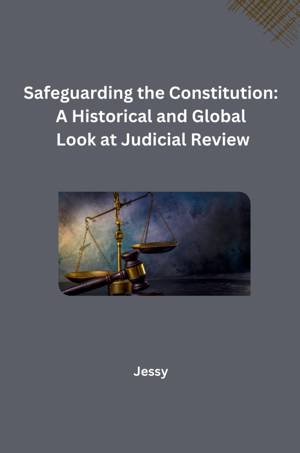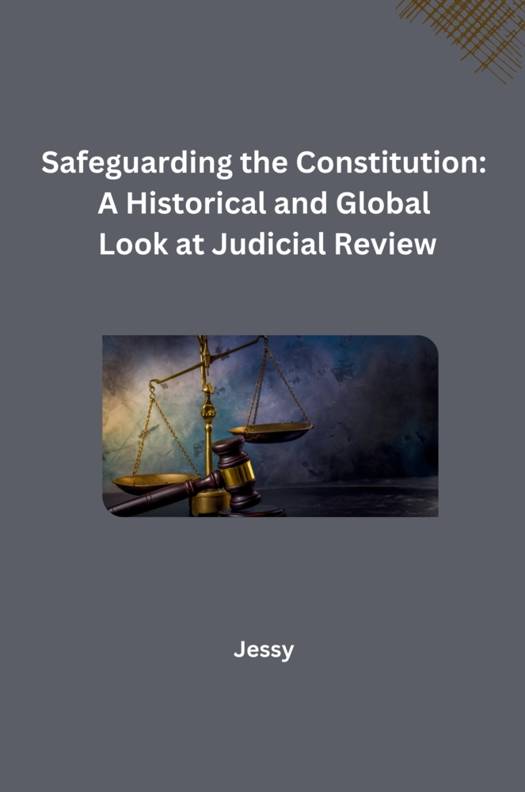
- Afhalen na 1 uur in een winkel met voorraad
- Gratis thuislevering in België vanaf € 30
- Ruim aanbod met 7 miljoen producten
- Afhalen na 1 uur in een winkel met voorraad
- Gratis thuislevering in België vanaf € 30
- Ruim aanbod met 7 miljoen producten
Zoeken
Safeguarding the Constitution
A Historical and Global Look at Judicial Review
Jessy
Paperback | Engels
€ 26,45
+ 52 punten
Omschrijving
Judicial review, the power of courts to check government actions against the constitution, is a cornerstone of constitutional democracies. Examining its history and global applications reveals its importance in safeguarding constitutions. In the United States, judicial review emerged from the landmark Supreme Court case Marbury v. Madison (1803). This established the principle that courts can strike down laws deemed unconstitutional. Judicial review has since played a vital role in protecting individual rights, ensuring government accountability, and interpreting the evolving meaning of the Constitution. Across the globe, judicial review takes various forms. In some countries, it is concentrated in supreme courts, while others have dedicated constitutional courts. Regardless of structure, judicial review serves a similar purpose: upholding the constitution as the supreme law. Studying judicial review comparatively allows us to understand its strengths and weaknesses. It fosters respect for the rule of law and can prevent abuses of power. However, concerns exist about judicial activism and unelected judges making law. Ultimately, judicial review remains a critical tool for safeguarding constitutions, ensuring government operates within constitutional bounds, and protecting fundamental rights
Specificaties
Betrokkenen
- Auteur(s):
- Uitgeverij:
Inhoud
- Aantal bladzijden:
- 270
- Taal:
- Engels
Eigenschappen
- Productcode (EAN):
- 9783384232373
- Verschijningsdatum:
- 18/05/2024
- Uitvoering:
- Paperback
- Formaat:
- Trade paperback (VS)
- Afmetingen:
- 152 mm x 229 mm
- Gewicht:
- 399 g

Alleen bij Standaard Boekhandel
+ 52 punten op je klantenkaart van Standaard Boekhandel
Beoordelingen
We publiceren alleen reviews die voldoen aan de voorwaarden voor reviews. Bekijk onze voorwaarden voor reviews.











